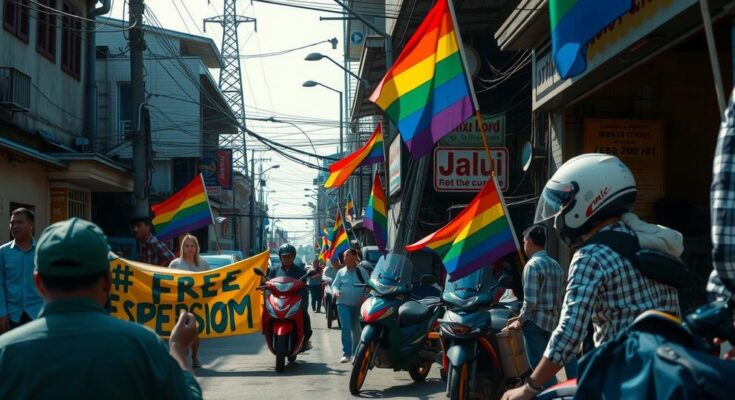ARTICLE 19’s report reveals how Thailand’s defamation laws, particularly the lèse-majesté provision, threaten freedom of expression, calling for urgent reforms. The report details the misuse of these laws against journalists and activists, emphasizing the need for decriminalization and alignment with global human rights standards. David Diaz-Jogeix stresses the importance of comprehensive reforms to foster democracy and protect human rights in Thailand.
In its pivotal report “Silencing Dissent: Defamation Laws and the Fight for Free Expression in Thailand,” ARTICLE 19 critically assesses Thailand’s defamation laws, stressing the urgent need for reforms. The document highlights how the controversial lèse-majesté provision criminalizes criticism against the monarchy, intensifying the repression faced by journalists, activists, and whistleblowers. Amid such challenges, the call for alignment with international human rights standards becomes increasingly pressing. David Diaz-Jogeix, Senior Director of Programmes at ARTICLE 19, emphasizes the necessity for Thailand to “join the global movement towards decriminalising defamation”. He advocates for thorough legislative reforms that could fortify human rights, nurture democracy, and foster a fair society. This aligns with the organization’s objective to empower local activists and defenders of human rights. The report outlines the complicated legal landscape surrounding defamation in Thailand, particularly highlighting the Criminal Code and the stringent lèse-majesté law. This legislation has been wielded as a tool to stifle dissent, creating a pervasive chilling effect that hampers open dialogue and constructive criticism in society. Since the previous 2021 study advocating for the decriminalization of defamation, the situation has noticeably worsened, with more than 25,000 cases filed since 2015. The current landscape showcases how these laws have been manipulated to silence vital opposition, with a notable rise in lèse-majesté prosecutions against pro-democracy figures following a moratorium’s end in 2020. David further states that “Thailand’s defamation laws violate international freedom of expression standards.” He argues that criminal defamation is excessive and argues for civil defamation laws which provide better mechanisms for safeguarding reputations. Addressing the misuse of Strategic Lawsuits Against Public Participation (SLAPPs) is also crucial in preventing the intimidation of critics in society. The report serves as a crucial guide for essential reforms, advocating for the repeal of restrictive criminal provisions, the introduction of protections against SLAPPs, and the establishment of civil defamation laws that meet international standards. Through such transformative changes, Thailand can move towards a more open, equitable society where free expression thrives.
The issue of defamation laws in Thailand is critical, as these laws, particularly the lèse-majesté provision, have been employed to restrict freedom of expression. With an increasing number of cases aimed at silencing dissenting voices, the advocacy for reform is urgent. ARTICLE 19’s report serves as a clarion call for legislative change, demanding that Thailand align its laws with global human rights standards to ensure protections for journalists, activists, and everyday citizens seeking to express their views.
In sum, ARTICLE 19’s report illuminates the challenges posed by Thailand’s defamation laws, especially the lèse-majesté provision, in undermining free expression. The urgent call for reform underscores the necessity for Thailand to decriminalize defamation, adopt essential legal protections against SLAPPs, and implement civil defamation legislation aligned with international norms. By embarking on this reform journey, Thailand can strengthen its democratic fabric and commitment to human rights.
Original Source: www.article19.org
